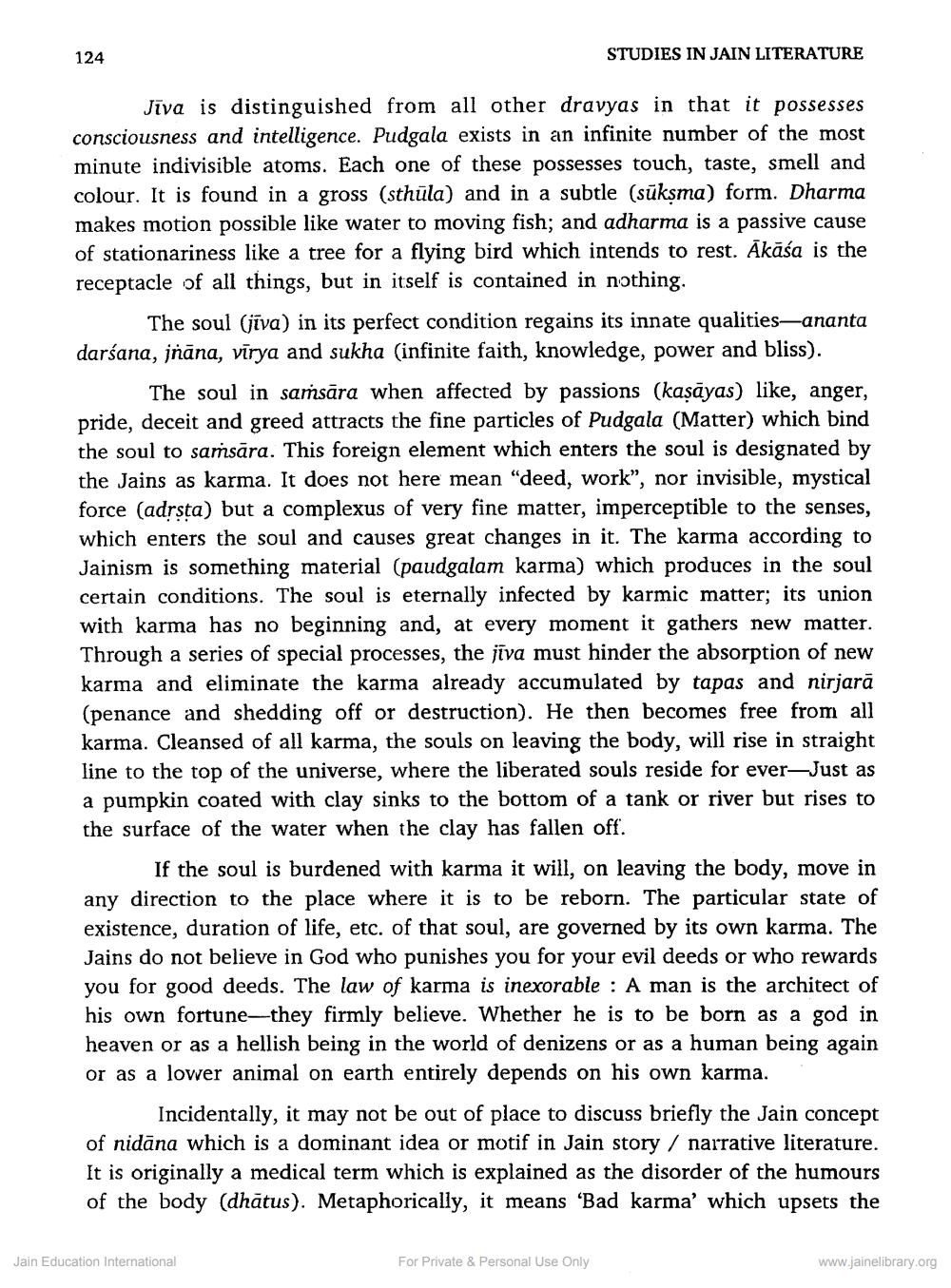________________ 124 STUDIES IN JAIN LITERATURE Jiva is distinguished from all other dravyas in that it possesses consciousness and intelligence. Pudgala exists in an infinite number of the most minute indivisible atoms. Each one of these possesses touch, taste, smell and colour. It is found in a gross (sthula) and in a subtle (suksma) form. Dharma makes motion possible like water to moving fish; and adharma is a passive cause of stationariness like a tree for a flying bird which intends to rest. Akasa is the receptacle of all things, but in itself is contained in nothing. The soul (jiva) in its perfect condition regains its innate qualities--ananta darsana, jnana, virya and sukha (infinite faith, knowledge, power and bliss). The soul in samsara when affected by passions (kasayas) like, anger, pride, deceit and greed attracts the fine particles of Pudgala (Matter) which bind the soul to samsara. This foreign element which enters the soul is designated by the Jains as karma. It does not here mean "deed, work", nor invisible, mystical force (adrsta) but a complexus of very fine matter, imperceptible to the senses, which enters the soul and causes great changes in it. The karma according to Jainism is something material (paudgalam karma) which produces in the soul certain conditions. The soul is eternally infected by karmic matter; its union with karma has no beginning and, at every moment it gathers new matter. Through a series of special processes, the jiva must hinder the absorption of new karma and eliminate the karma already accumulated by tapas and nirjara (penance and shedding off or destruction). He then becomes free from all karma. Cleansed of all karma, the souls on leaving the body, will rise in straight line to the top of the universe, where the liberated souls reside for ever-Just as a pumpkin coated with clay sinks to the bottom of a tank or river but rises to the surface of the water when the clay has fallen off. If the soul is burdened with karma it will, on leaving the body, move in any direction to the place where it is to be reborn. The particular state of existence, duration of life, etc. of that soul, are governed by its own karma. The Jains do not believe in God who punishes you for your evil deeds or who rewards you for good deeds. The law of karma is inexorable : A man is the architect of his own fortune--they firmly believe. Whether he is to be born as a god in heaven or as a hellish being in the world of denizens or as a human being again or as a lower animal on earth entirely depends on his own karma. Incidentally, it may not be out of place to discuss briefly the Jain concept of nidana which is a dominant idea or motif in Jain story / narrative literature. It is originally a medical term which is explained as the disorder of the humours of the body (dhatus). Metaphorically, it means 'Bad karma' which upsets the Jain Education International For Private & Personal Use Only www.jainelibrary.org




